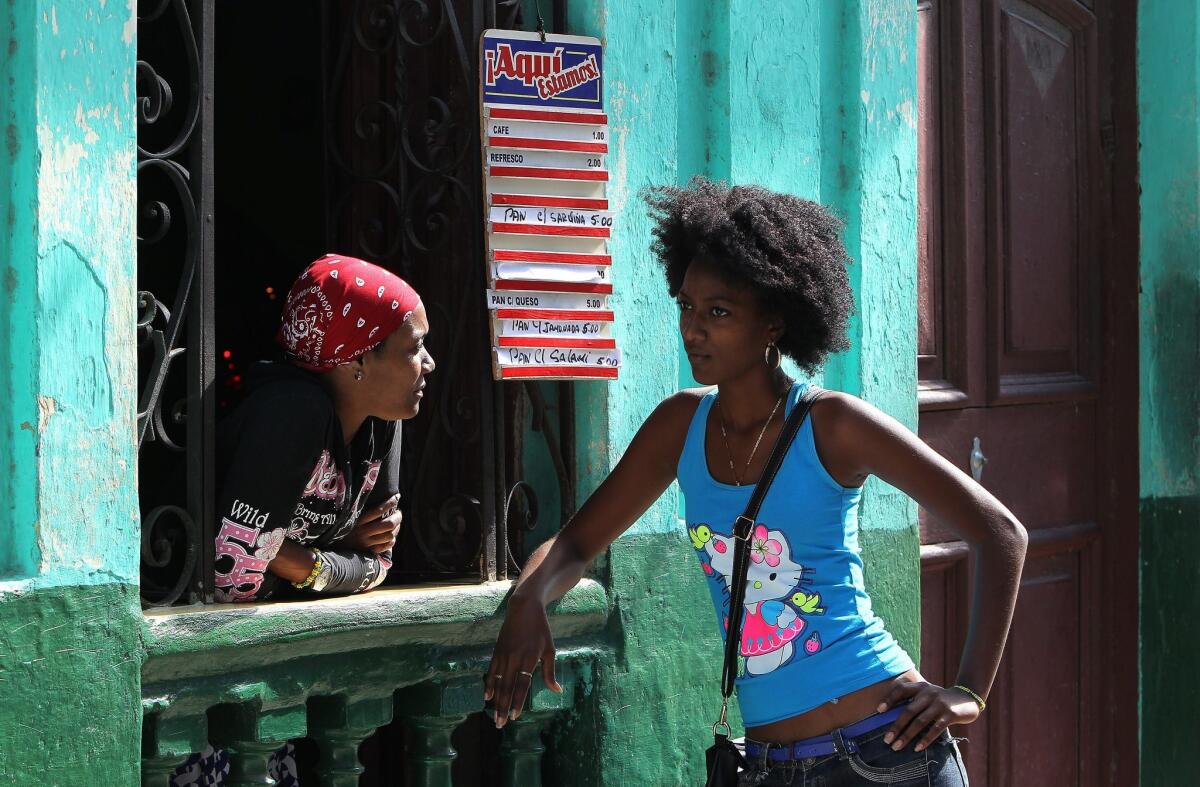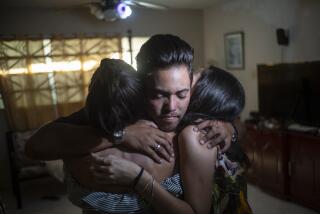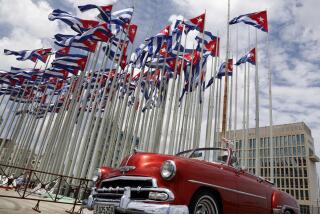Travel, trade with the U.S. are among Cubans’ top hopes

Reporting from Havana — Many Cubans expressed joy Friday at the prospect of opened relations between their nation and the United States, and, especially, at the possibility of unrestricted trade and travel for the first time in half a century.
“It’s about time!” was the expression heard over and over in downtown Havana as shoppers, families and office workers bustled about the warm streets on what was a de facto school holiday.
“The whole world has been expecting something like this,” said Ali Estevez, 37, who works in a government office. Her husband runs a private business, part of the slow but steady broadening of economic freedom that President Raul Castro has allowed.
The hope for a better life was evident among many people in Havana, the capital, as they talked about what may follow Wednesday’s announcements by Castro and President Obama that revealed plans to restore diplomatic relations between the two countries, which the United States cut in 1961.
Officials said the U.S. is expected to reestablish an embassy in Cuba, ease travel restrictions to the island, allow an increase in remittance levels, expand commercial sales and exports to the island, and review the communist country’s designation as a state sponsor of terrorism.
The deal involved the release of three Cuban spies by the U.S. in exchange for the release of a former Cuban intelligence officer who was imprisoned in Cuba for nearly 20 years after alerting U.S. officials about Cuban spy rings in the United States.
The announcements by Obama and Castro came shortly after the release of Alan Gross, a subcontractor for the U.S. Agency for International Development, who was arrested in 2009 for distributing communications gear in Cuba, which is illegal.
“Everyone is talking about this,” said Jesus Castaneda, a born-again Christian hawking cookies and religion. “Things will change. Cubans can come back.”
It remains to be seen how widely Castro will permit greater freedom at home as he makes international overtures.
“This is still a regime that represses its people,” Obama said in a news conference Friday. Change, he said, will take time. But, “suddenly Cuba is open to the world in ways it hasn’t been before.”
The Cuban public was ecstatic about the possibility of freer relations. Castro’s speech announcing the changes was being repeated regularly on Cuban television and radio, essential for a public that has little access to the Internet. Friday was the eve of Teacher’s Day, so many students had the day off.
“We young people, we hope things will change,” said Amanda Serra, 18. “We want the right to travel, to have money, to reach the Internet.”
Ermelida Verdezia, 60, said she makes the equivalent of $20 a month selling gum, candy and similar items on the street. “It is a great dream,” she said of the possibility of opened relations.
“We’ve been waiting for this for a long time,” said Rafael Fonseca, a driver. “Everything will be better. I can’t believe it.”
Twitter: @TracyKWilkinson
More to Read
Sign up for Essential California
The most important California stories and recommendations in your inbox every morning.
You may occasionally receive promotional content from the Los Angeles Times.










